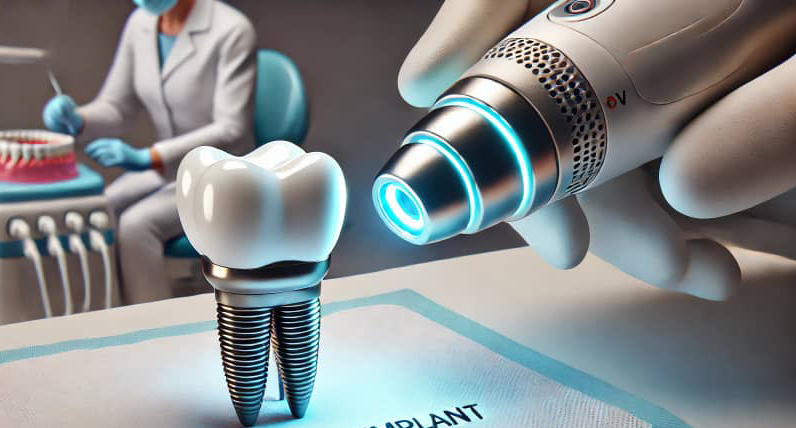
A research team at UCLA School of Dentistry, led by Dr. Takahiro Ogawa, has introduced a groundbreaking technology that significantly improves dental implant outcomes. After a decade of study, they developed a UV light treatment device that prepares titanium implants for better osseointegration by eliminating surface hydrocarbons in just one minute, right before implantation. This advancement accelerates healing and reduces complications, setting a new standard in implant dentistry.
The challenge of the titanium pellicle—an unwanted layer of hydrocarbons—has long impeded implant success, causing issues like peri-implantitis, a serious gum disease around implants. Originally, removing this layer with UV light took 48 hours, making it impractical for clinical use. However, the UCLA team’s persistent research reduced the treatment time to just one minute, making it possible to apply the treatment directly in the dental office just before surgery.
This innovative solution is expected to significantly increase the success rate of dental implants and improve patient recovery. By enhancing the immediate integration of implants with the jawbone, the technology minimizes complications and can help patients recover faster, with less risk of implant failure.
Published in the Journal of Functional Biomaterials, the team's findings signal an exciting leap forward in dental implant technology, with potential applications beyond dentistry. This UV light treatment could influence future medical technologies focused on implant integration and patient recovery.

